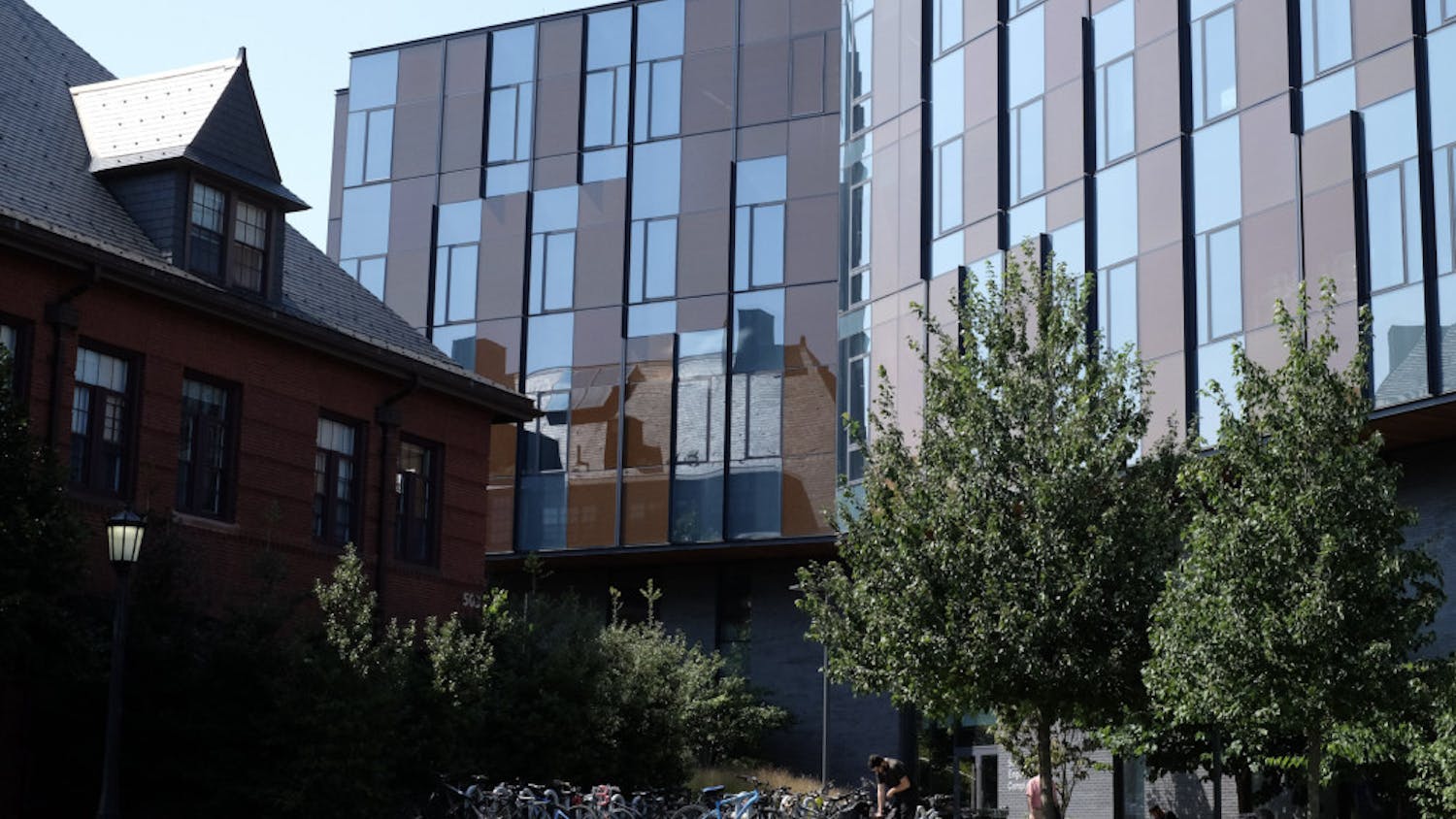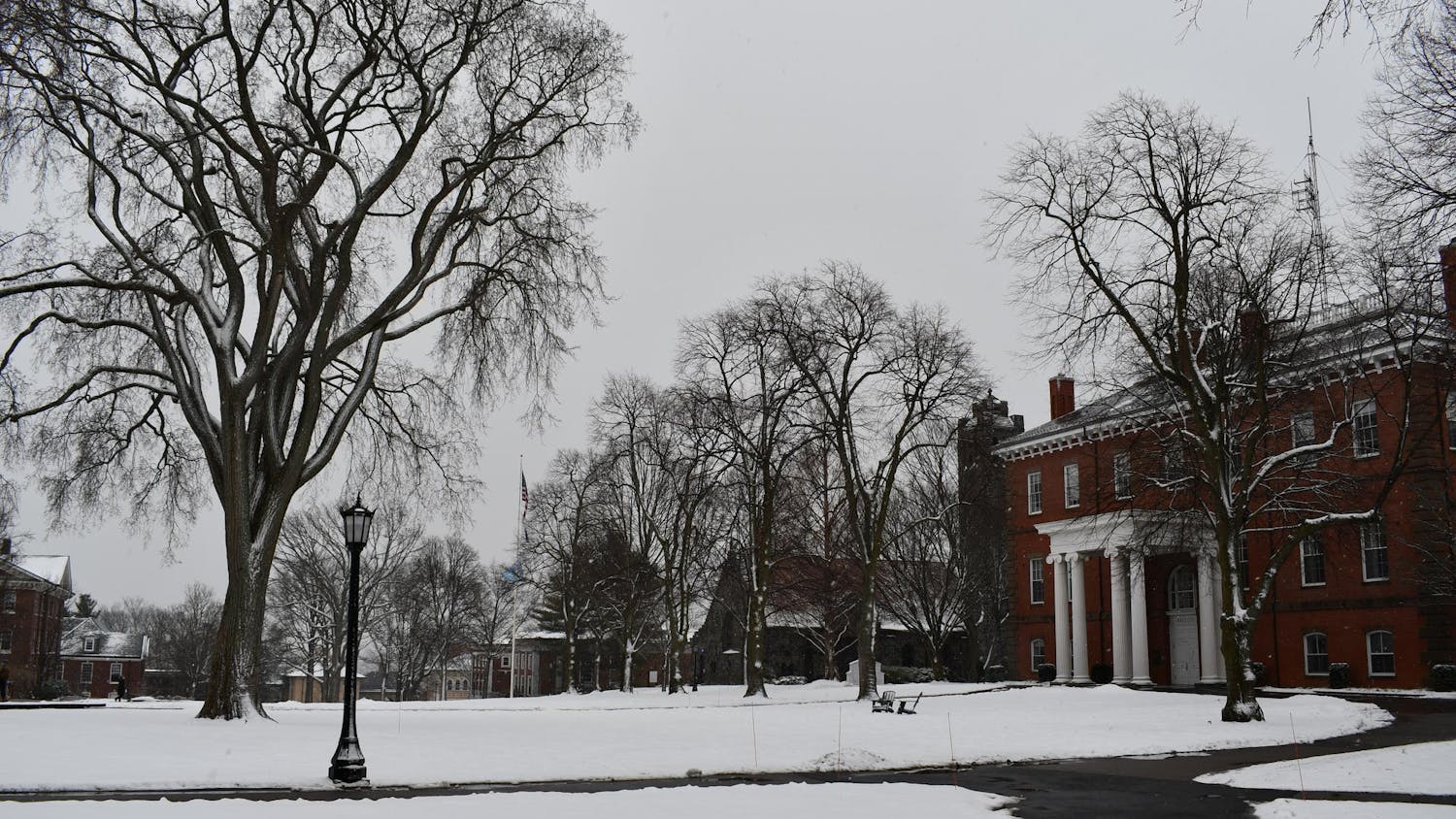Students for a Free Tibet worked with the Tibetan Association of Boston and others to organize a weekly demonstration protesting the Confucius Institute at Tufts University (CITU). The first protest took place this past Saturday and they are expected to continue every Saturday until Tufts agrees to shut down the Confucius Institute on campus.
Tenzin Yangzom, Students for a Free Tibet Boston president and one of the organizers of the CITU protest, explained how the first protest went.
“We started at the [Confucius Institute] building, and then we worked our way around. We had a few speeches made there, a couple of onlookers — Tufts students, maybe Medford residents nearby — and then we walked toward President Monaco’s home … and then we went down Professor’s Row,” Yangzom said.
As of February, there were541 Confucius Institutes worldwide, and as of August, there were75 Confucius Institutes in the United States, 65 of which are part of universities.Sponsored by Beijing, Confucius Institutes have recently come under fire because they are partially funded by the People’s Republic of China under guidance from the Chinese Communist Party, according to theU.S. Department of State’s website.
Yangzom, who is Tibetan-American and was born in exile in India, explained why this issue is personal to her, and why she is participating in protests against the CITU.
“Just as a community of refugees, especially us Tibetans, we know what it’s like to experience this great loss and grief and trauma. And now that we finally settled into what we can call a home now, we just cannot tolerate that the [Chinese Communist Party] is kind of literally in my backyard,” Yangzom said.
Yangzom said that the organizers have reached out to Tufts multiple times through email about shutting down the CITU, but that the university and University President Anthony Monaco have not been very responsive.
“That’s why we’re kind of hoping that by making our presence very clear on campus … they’d be more willing to hold a meeting or discuss with us,” Yangzom said.
Pema Doma, campaigns director at Students for a Free Tibet, which is headquartered in New York City, explained the structure of the organization. She said there are two portions, the first of which focuses on grassroots efforts while the second runs a number of campaigns.
“The second piece of it is the campaigns, one of which is this campaign against Confucius Institutes,” Doma said.
This campaign against Confucius Institutes is personal to Doma as well.
“My dad’s mother was a single mother with three children, and so she decided to leave Tibet and escaped to exile, primarily for safety. And so as a child, my dad walked across the Himalayas into Nepal where he spent the rest of his childhood,” Doma said.
Protesters from local Tibetan, Hong Kong, Uighur, Vietnamese and Taiwanese communitiesgathered at the CITU earlier this year, on Oct. 1. According to Doma, this protest happened on Global Day of Action, which is organized on China’s National Day, the anniversary of the establishment of the People’s Republic of China.
Doma said there were protests in about 100 cities around the world, including in Medford at the CITU, on that day.
According to Patrick Collins, executive director of media relations at Tufts, the university supports the protesters’ freedom of speech.
“We respect the right of critics to voice objections to university decisions and to participate in peaceful demonstrations that comply with university policies on gatherings and protests, and all COVID-related safety guidelines,” Collins wrote in an email to the Daily.
However, he said that there have not been concerns about pro-China sentiments in the curriculum at the CITU specifically.
“No member of the university faculty, staff or student body indicated that they had witnessed or been exposed to inappropriate conduct or undue influence on the part of the Confucius Institute at Tufts University,” Collins said.
Collins said the university had not heard concerns about the CITU from faculty, staff and students, but decided to complete a review of the CITU based on the concerns of others about pro-Chinese sentiment in Confucius Institutes.
“Since that time, we have received no complaints from students or faculty related to infringements on academic or religious freedom … the non-Tufts specific concerns raised about Confucius Institutes during our review were counterbalanced by strong support for the CITU,” Collins said.
However, supporters, including Yangzom, will continue to protest until the university agrees to close the CITU.
“We will not give up. We will be here until the Tufts [Confucius Institute] is shut down,” Yangzom said.






